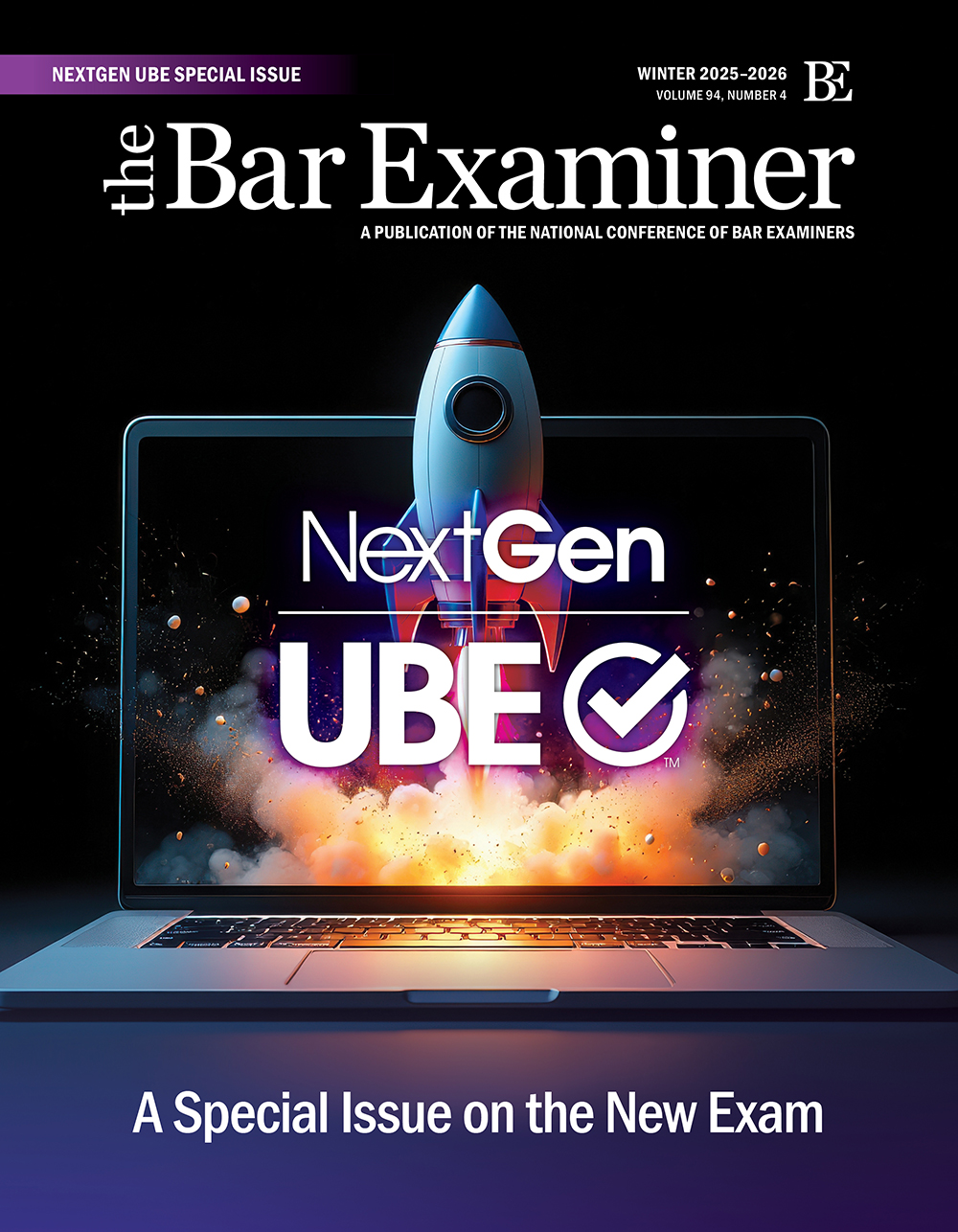This article originally appeared in The Bar Examiner print edition, Fall 2022 (Vol. 91, No. 3), pp. 1–2. By Timothy Y. Wong
 As we enter fall, with the beginning of a new year for law schools and for NCBE’s Board of Trustees, it seems appropriate to take a moment to reflect.
As we enter fall, with the beginning of a new year for law schools and for NCBE’s Board of Trustees, it seems appropriate to take a moment to reflect.
In the past year, we have seen the world loosen pandemic restrictions. In the world of bar admissions, 2021 continued to require that jurisdictions and NCBE show creativity, flexibility, and commitment in adapting to ever-changing circumstances. Just over a year ago jurisdictions collectively completed a hybrid July bar exam administration, with 25 jurisdictions administering the exam in person and 30 jurisdictions doing so remotely, to almost 47,000 candidates in total. Jurisdictions returned to in-person administrations in February and July 2022. Through it all, jurisdictions have worked with NCBE to evaluate the shifting pandemic landscape and administer the bar exam as circumstances changed.
This past year also saw steady progress on the next generation of the bar exam. In June 2021, NCBE announced the selection of members for its Content Scope Committee, a dedicated group of volunteers that included bar examiners, legal educators, deans, and practitioners. This committee was tasked with making recommendations to the Implementation Steering Committee regarding the breadth and depth of coverage for the new exam, based on the Testing Task Force’s recommended subject areas and practical skills and abilities to be assessed on the new exam. The resulting Content Scope Outlines were published for public comment in March 2022.
Test development for the new exam also began in 2021 and continues to progress; in September 2021, NCBE staff began working with teams of question drafters to develop prototypes of new item types and item sets to assess legal knowledge and skills in the integrated design of the new exam. Pilot testing on these prototype item sets began in summer 2022, and NCBE’s psychometric staff are evaluating scoring and grading methods to ensure overall reliability and validity of the new exam. After psychometric analysis of the pilot testing data is complete, sample prototype items will be made available.
As details about the new exam have emerged, several jurisdictions have requested presentations to get up to speed. NCBE staff have given 17 presentations at relevant conferences and to individual jurisdictions, with 13 more scheduled. NCBE has also presented at stakeholder organizations, conducted informational sessions at recent NCBE educational events, and offered webinars.
The year to come will continue to require adaptability and great dedication as NCBE continues to build a new exam while supporting the current one. While developing the new exam, NCBE welcomes stakeholders’ input, making adjustments along the way. For example, feedback from jurisdictions at NCBE’s Annual Bar Admissions Conference this spring offered valuable input that has led to the decision to roll out the new bar exam through jurisdiction-managed testing sites, rather than testing centers.
Alongside this work on developing the new exam, NCBE embarks on several continuous improvement opportunities. For instance, NCBE policy committee goals for the following year include
- reviewing NCBE’s standard character and fitness application to ensure questions are necessary, fair, and unbiased;
- exploring the creation of a central repository for routine character and fitness information to streamline the process for applicants and jurisdictions;
- continuing to work with organizations such as the Council on Legal Education Opportunity, Inc., to provide programs that offer assistance and support to law students from historically marginalized communities, with the goal of promoting academic and bar exam success, and ultimately, greater diversity in the legal profession; and
- evaluating opportunities to enhance NCBE’s Cross-Reference service, which allows jurisdictions to determine whether applicants have previously submitted any type of application to another jurisdiction.
As the incoming chair of NCBE’s Board of Trustees, I have big shoes to fill to continue the momentum and work of Suzanne Richards in her year as chair. Though the work is challenging, NCBE is blessed with a talented and dedicated staff, and Judy Gundersen’s thoughtful and collaborative leadership. We have all benefited from NCBE’s work to address the exceptional challenges of the past few years.
I am excited and committed to support this work. I hope that all of you in the bar admissions community will do likewise by sharing your ideas and talent in the year ahead.
Best wishes to all,

Timothy Y. Wong
Contact us to request a pdf file of the original article as it appeared in the print edition.







